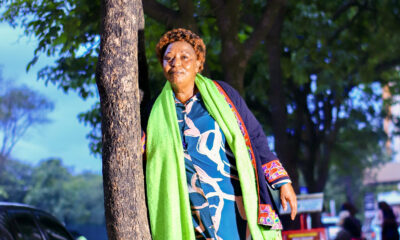Features
Food Blogger Yasmine Fofana wants Africa to be the Go-To for Foodies

Africa had the second-fastest-growing tourism market globally before COVID-19. Now that borders are open and travellers are again exploring, Yasmine Fofana is determined to make sure that visitors’ bucket lists include Africa as a foodie destination.
Abidjan is one of the most delicious cities in the world—and Yasmine Fofana has made it her mission to let the world taste her city since 2012 when she launched Afro Foodie as the first food blog in Ivory Coast.
Fofana had just returned to the city following her undergraduate studies in the United States. As a foodie, her instinct was to start exploring the city’s food and restaurant scene. only problem? She could not find restaurant reviews. “It wasn’t something fairly popular in my country,” she explained.
After she won a dinner for two at a seafood restaurant, the absence became glaring. She was curious to know more about the restaurant before the visit, but her internet searches came up empty.
“Back then, Facebook pages were just starting, Instagram as well, and I couldn’t find any valuable information about the place online or offline, for that matter. That’s when the idea of the blog came about, “Fofana said.
“I saw it as a solution to a personal problem, but I quickly figured that it could also be helpful to others looking for the best eats and new foodie spots.”
At the time, her blog was called Journal d’une Foodie—”A foodie’s diary.”
At first, Fofana shared restaurant reviews with detailed information on the ambience, the service, and the cuisine. It became an instant hit at home and with Ivorians in the Diaspora, who also wanted to keep a finger on the pulse of the evolving food scene in their country.
Under the more recent name, Afro Foodie, the blog’s tagline is “For the Love of Food, African Gastronomy & Conversations about Culinary Cultures.” It delivers on the promise with more than restaurant reviews. Fofana also converses with chefs, bloggers, content creators, and culinary enthusiasts.
Being the first food blogger in Ivory Coast, it turns out, was just the beginning.
Next came Abidjan Restaurant Week, an idea Fofana had in 2015 but only got the confidence to launch in 2017, after spending 2016 as part of the Mandela Washington Fellowship. This life-changing experience helped her figure out what she wanted to do with her life: show the diversity of African food beyond traditional staples and encourage people to visit the country to eat.
“It is very unfortunate that there are no African cities listed among the top 10 or top 20 foodie destinations in the world. Ivorians love to eat. We are literally eating all the time, from sweet to savoury street food that can be found at every little corner at every time of the day, to more gourmet meals; we love it all, “Fofana said.
“It’s also important to point out that Côte d’Ivoire has 60 ethnic groups. Interestingly enough, each has its own culinary traditions, staple meals, and cooking techniques. Last but not least, Côte d’Ivoire is located right by the Atlantic Ocean, which means fresh seafood and local delicacies with fish,” she added.
She says that her childhood, especially eating with her cousins, made her interested in food.
“It’s one of the sweetest memories of my childhood and the beginning of my love story with food. I’m proud of my West African heritage with parents from Cote d’Ivoire, Guinea, Senegal, and Mali. Both dishes are served with rice.“
This year, Fofana has added another feat to her impressive list of achievements in shifting narratives about food in her country and West Africa. She has launched a series called “Taste of Africa”.
The series is produced in partnership with narrative change organisation Africa No Filter, which funds arts, culture, and media projects disrupting stereotypical narratives of the continent.
A Taste of Africa kicked off in April 2022. Fofana will go to Ivory Coast and Senegal to take pictures of restaurants and street food and talk to other foodies and chefs.
“Food connects us in such a powerful way, and I have always believed in experiencing a country through its cuisine. I want to showcase the multifaceted nature of African gastronomy, which has been deemed unattractive and misunderstood for the longest time,” Fofana said.
“It will allow me to amplify the voices of the movers and shakers of our culinary heritage in Côte d’Ivoire and step beyond its borders to immerse myself in other African cultures as well,” she concluded.
Photo/Story Credit: Lerato Mogoatlhe, bird story agency




















